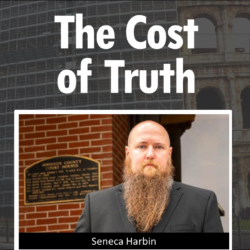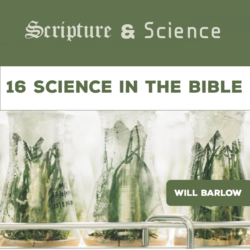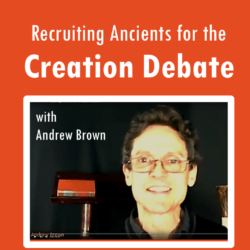This is a follow-up discussion to Will Barlow’s Scripture and Science class, parts 6-8. If you haven’t watched or listened to that yet, you can go here or find it on the Restitutio podcast feed as episode 464 on Apple Podcasts or Spotify.
Sean Finnegan asks Will Barlow about light, relativity, quantum theory, the big bang, and fine-tuning. They talk about the cosmological argument and Will’s debate with Tom Jump. Lastly, they cover some alternative hypotheses to God, including the oscillating universe, the multiverse, and the anthropic principle.
Questions for this interview:
- You began session 6 talking about light’s particle-wave duality, general relativity, and quantum theory. You sounded pretty excited to describe these phenomena. Why do you get so excited about physics?
- Let’s talk about the big-bang. How sure are you there was a big bang? How sure are you the universe is 13.7 billion years old? Especially in light of the James Webb telescope findings.
- Let’s talk about the cosmological argument. How compelling do think this argument is to prove God’s existence?
- In a nutshell explain why the oscillating universe and multiverse hypotheses fall flat.
- You talked about fine-tuning. When you debated Tom Jump on this, he focused his attention on God as the suitable object of the design inference. He granted the apparent fine-tuning and granted that there should be a cause of it, but denied that God was at all a plausible candidate. So long as he can punt to as-yet undiscovered natural constraints or an infinite series of universes (or multiverse) with random initial conditions, he doesn’t feel the pressure of this argument. How could you strengthen your case?
- Why don’t you find the weak anthropic principle a convincing defeater for fine-tuning? You mentioned a quote by Stephen Meyer. Could you explain that further?
- A criticism of creationism is that the universe is so empty. It’s a great waste of space. If God designed our universe for us to explore, why are the stars so far away? It would take several lifetimes to get to the Proxima Centauri in the Alpha Centauri system, 4.25 light years or 40 trillion km away. Our fastest spacecraft is the Parker Solar Probe which after slingshoting around the sun travels at 531,084 kmh. Traveling at that speed would make the trip to Proxima Centauri take over 8,642 years to reach.
- How do you respond to the criticism that saying God explains fine-tuning effectively ends any further scientific inquiry on the subject?
- When you talk to people about fine-tuning, how do they react? In my experience, a lot of people are turned off by scientific conversations. What have you found? Any tips on making it interesting?






